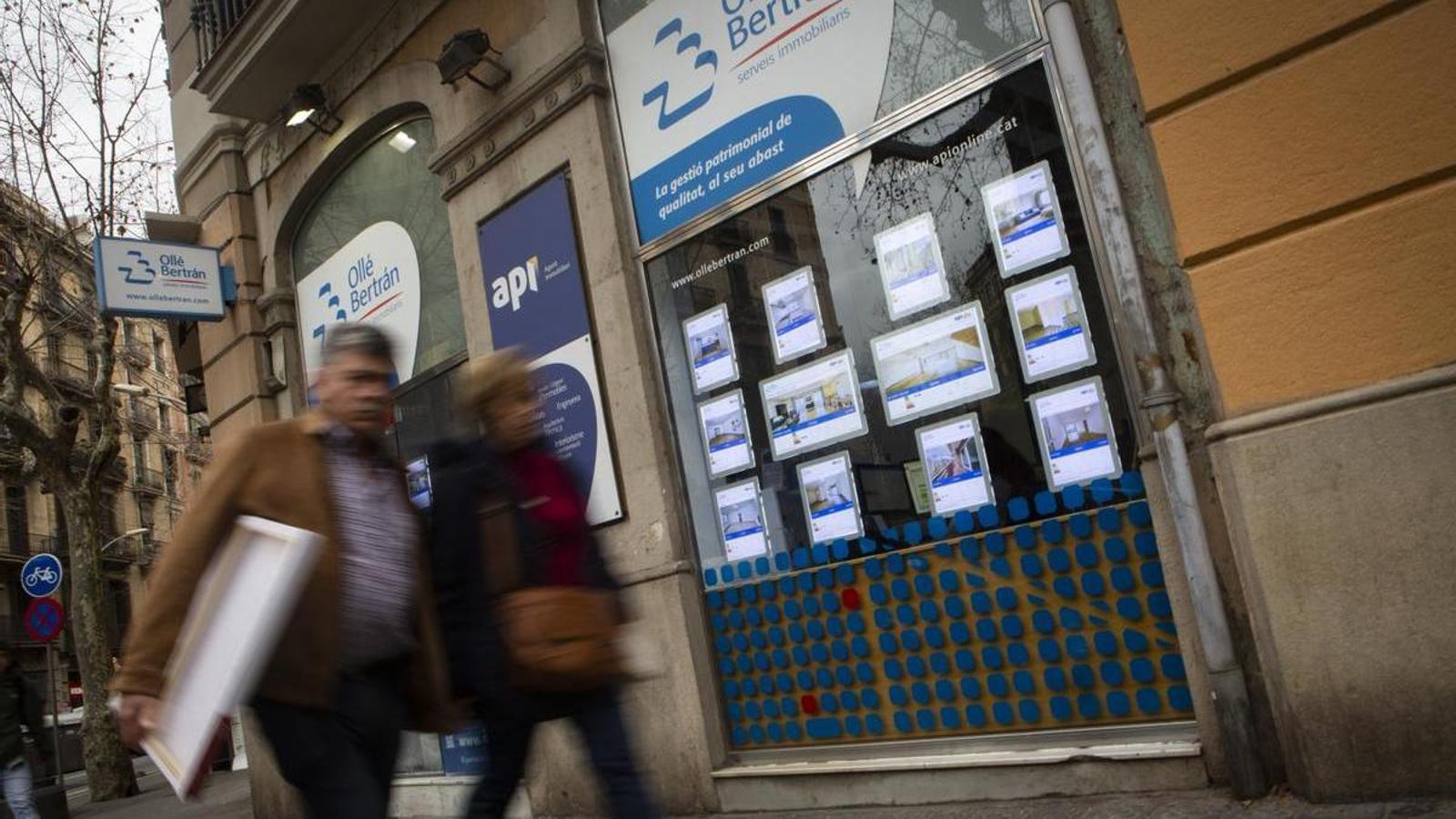Fear of not being able to afford a home: FOMO syndrome takes hold in the housing market.
Catalonia recorded its second-best June in sales history, behind only 2007.


BarcelonaA year and a half after the price cap, the regulated rental market is stuck in a dynamic of loss of activity. And Barcelona, the great testing ground for this policy—which is applied almost exclusively in Catalonia—is a paradigmatic case: rental prices are falling, tenants are staying in their homes, and fewer new contracts are being signed. But this is only one part of the housing market. There is another that is experiencing a brilliant moment.
And it has even surpassed some records from the most effervescent period of the sector, in the midst of the real estate bubble. While the purchase and sale of second-hand homes in Catalonia reached last October the highest figure in history, with 8,683 transactions, the first quarter of this year saw housing prices surpassed its all-time high, established since the second quarter of 2007, in the midst of the bubble. While for some This trend is a new bubble, the scenario of lower mortgage prices has many citizens seeing an opportunity they can't miss, that is, they are afraid of being left out of the market. And this can become a problem.
"We noticed that the volume of calls we've been receiving in recent months has increased dramatically. Suddenly, we haven't done any marketing and we have many more clients," the CEO of the broker Trioteca mortgage company, Ricard Garriga. This situation, says Garriga, cannot be explained solely by economic and demographic factors, which are present, but also by a psychological component that is influencing the decisions of many buyers: FOMO (Fear of Missing Out, in English). A concern that has also been raised by the financial comparison site HelpMyCash.
Rent, the root of everything
"This situation is due to several factors: one of the main ones is that suddenly all the families who were comfortable with renting realize there's no supply," says Garriga, adding that the little supply there is is sky-high in price: "The second is that if there are good rentals and good prices, buying can wait," adds Garriga. And the third element triggering this behavior is the macroeconomic context, which is pushing mortgage prices down, and the forecast is for them to continue to fall.
"Currently, we have the most affordable mortgages in Europe. It's very good for us, not so much for the banks, which in the case of BBVA and Santander means they don't prioritize them here, since in other places they are at 7%, like in Latin America, or at 4% or 5%." On the other hand, here we have them, co-founder of the Spanish Association of Mortgage Brokers.
And that's where the last point comes into play: FOMO. Many clients of this broker They're renting and want to move on to buying because they've been told their contract won't be renewed. "They think, 'My mortgage payment will be much cheaper than the rent, which there isn't any.' We're noticing people are in a much greater hurry," says Garriga. And in fact, the trend is clear: if the one-year Euribor falls—the indicator used as a reference for variable-rate mortgages—more people can buy a home, demand rises, and if supply doesn't respond, prices will rise. "It's this FOMO, running because everyone around me is buying and prices keep rising," concludes Garriga.
Miquel Riera, mortgage specialist at the financial comparison site Helpmycash.com, assures that this rush on the part of buyers is not good. "At the national level, we've had sales transactions exceeding 60,000 for several months. Houses are being reserved without visiting them," he warns. This situation, he says, occurs especially in homes purchased by foreign investors. People see the ad and the photos and are so afraid that they make an offer without actually visiting the property. "Several real estate agents have told us this," he argues.
The Barcelona exception
But this difficulty in meeting demand doesn't seem to be a problem in Barcelona for the moment. "We're talking to many real estate agencies. We've noticed that supply is increasing because as contracts expire, they put them up for sale right around that time. There are more and more apartments for sale," says Garriga.
And this stems from the rental situation: according to Trioteca, this is explained by the fact that many owners are choosing to sell their apartments precisely because of the regulation of rental prices. "This has caused the supply in Barcelona to increase slightly, something that isn't happening in other major cities, where shortages continue to set the tone," they add.
Half a million young people want to buy a home
The latest housing data from the Center for Opinion Studies (CEO) confirm this trend. One in five Catalans is considering buying a home (21%), and if we only consider questions from young people between 25 and 34 years old, the figure rises to 45%.
"Considering that the Catalan population in this age group is one million people, that means at least 500,000 young people," its director, Joan Rodríguez, explained to ARA, warning that it will be impossible to meet demand and that housing "will become an asset and become an asset and become an asset."
